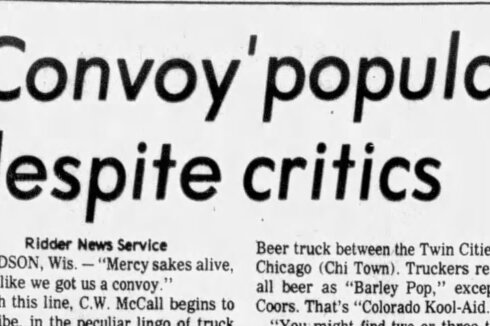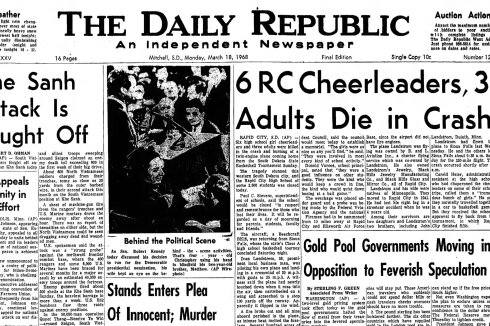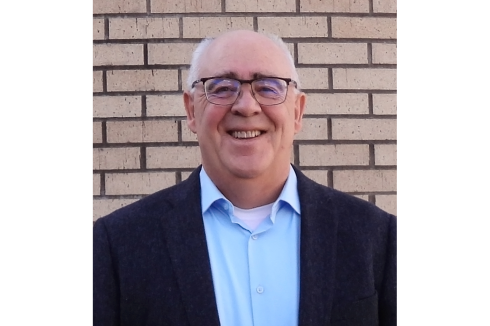I remember where I was when I first heard the term. It was early 1998 and I was in a McDonald's drive-thru. My friend was explaining to me why he and his family had decided to move to rural Arkansas next year.
"Y2K," I said. "What's that?"
ADVERTISEMENT
Y2K. The "millenium bug" arriving in the year 2000. The new millennium.
Some of you might well remember this time. For those under about age 30, let me catch you up.
Many of the computers used in government and business in the late 20th century, including ones that powered the early internet, supposedly had something of a ticking time bomb inside of them.
"It's very hard to tell how bad the situation will be. I'm sure things will break. It's very hard to dispel a nightmare scenario," Nathan Myhrvold, Microsoft's chief technology officer, was cited as saying in a January 1999 Forum column. "The dark-side scenario of airplanes falling out of the sky and bank computers crashing is possible. But it's fundamentally very, very hard to know whether the impact will be big or little."
The problem was the two-digit-year date field (think "93" as in "1/1/93"). Theoretically, the arrival of the new millennium — the year 2000 — would reset all these computer clocks to "00" as in "1/1/00," wrecking anything that counted on dates to function properly. Theoretically, anyway.
The list of public fears was a long one, illustrating how central computer technology had become in our lives, and mirroring larger uncertainty about the new millennium.
And while company officials and local, state and federal officials sought to reassure the public, ongoing reporting indicated nobody was quite sure nothing would fail. So the fears remained up until the last minute.
ADVERTISEMENT
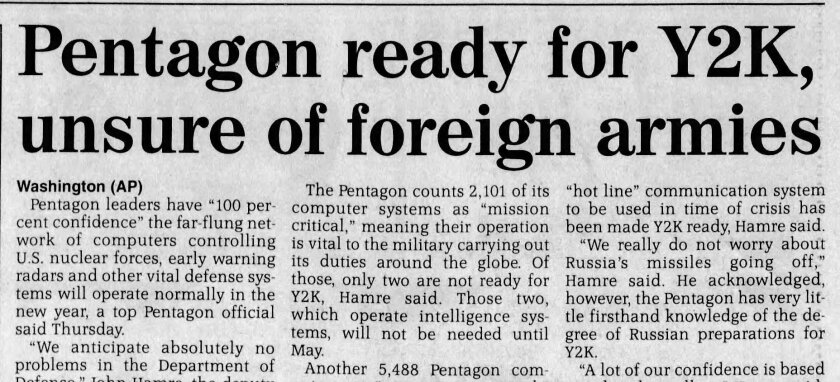
"Up against the deadline for fixing an unprecedented technological blunder, the world exhibited some jitters Thursday over the prospect of failures in the computers on which we depend," wrote the Associated Press, as printed by The Forum on New Year's Eve, 1999. "There was testing galore and a few confessions of Y2K-unreadiness."
Some religious figures took the moment to insist the coming apocalypse was God's judgment on a wayward culture.
"(God) may be preparing to confound our language, to jam our communications, scatter our efforts and judge us for our sin and rebellion against his lordship," evangelical Christian leader Jerry Falwell said in August 1998. "We are hearing from many sources that Jan. 1, 2000, will be a fateful day in the history of the world."
As if to embody the looming fears, WWE wrestler Chris Jericho gave himself the moniker Y2J (for Jericho), playing off the Y2K term. His entrance to arenas was marked by a countdown video that, when it got to zero, included shutting off the venue lights, leaving people in noisy darkness before Jericho was revealed.
As the year 2000 approached, the fears began to grow into something of a hysteria for some people, sparking drastic decisions, like my friend's family's decision to move to the woods. Others took money out of the bank. Some stocked up on supplies and guns and ammunition to survive the coming failure of civilization.
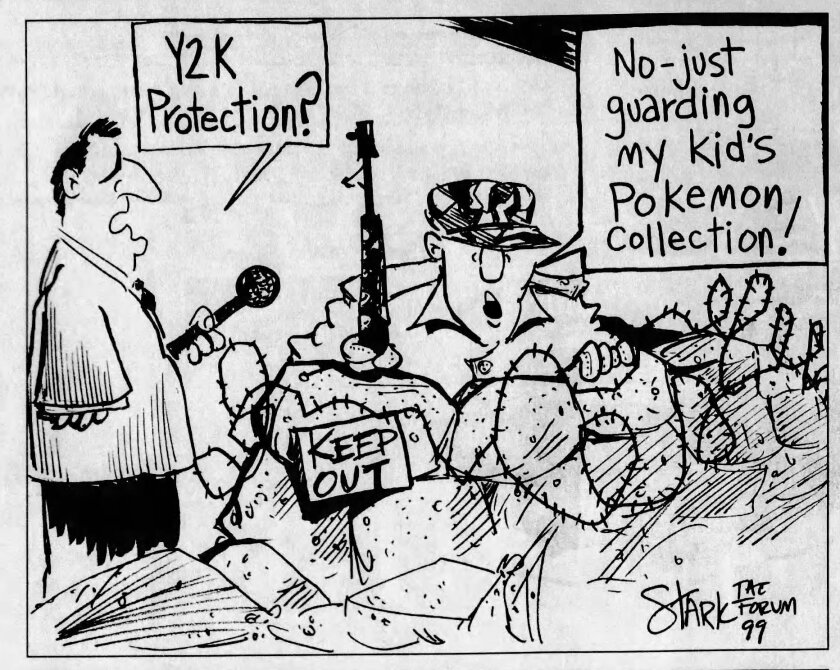
The growing fears were in odd juxtaposition to the more joyful expressions by some about the year 2000. Big millennium parties were planned. Monopoly put out a millennium edition with fancy holographic cards. The boy band Backstreet Boys released their "Millennium" album, still iconic among my generation (OK, fine — I'm listening to it right now).
Many people dismissed the fears and planned to go about their lives, expecting the furor was overblown.
ADVERTISEMENT
I moved from North Dakota to South Dakota in 1999, and as the new millennium approached, I was about 55% convinced Y2K was going to cause big problems. I remember counting down the last days of the 1900s and thinking everything was possibly about to change.
It didn't, of course. While there were some hiccups among some computer systems, much of the billions of dollars in preparation worked. A concerted global effort to stave off disaster was effective.
The apocalypse never arrived, civilization continued. In fact, my daughter was born later that year — one of many "millennium" babies who are now 24 years old.
So what happened to my friend who moved to Arkansas? I don't know. I'd like to think he and his family went on to live their best life in a cabin in the Ozarks, ready for the end of the world that never arrived.
Have a moment or person in history that you think is especially interesting? Contact me at jfugleberg@forumcomm.com and tell me why you think it would be a great subject for this column.




